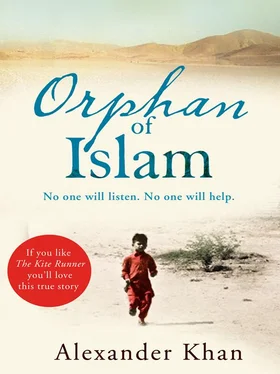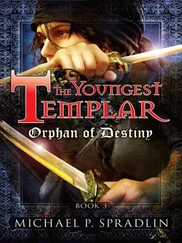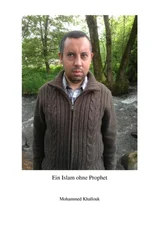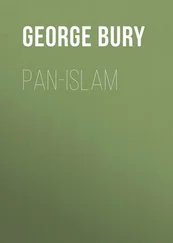Dad started work as a jobbing builder and handyman, fixing drains, roof tiles, chimneys and window frames on houses all over Hawesmill. The condition of the properties meant work was plentiful. We were glad, not just because it brought some money in but also because Dad was around a lot more. His trips to Pakistan stopped and it slowly dawned on me that when Dad had introduced Rabida, Baasima, Parvaiz and Nahid as our ‘brother and sisters’ he had been telling us that he was their dad too. This was the family he’d left behind when he’d journeyed to England, the family that had patiently waited for him while he had married Mum and had us two.
Rabida was older than me. The others were younger. Dad had been a busy man on his trips abroad, that was obvious. I don’t know how Abida had reacted to the news of his English marriage. I expect she had taken the long-term view that one day she would come to England and take up her rightful place as Dad’s wife. I don’t know how she viewed Mum. Perhaps she thought she’d share Dad with her, as polygamy is not uncommon among Muslims. Or maybe she knew full well that Mum wouldn’t be around one day.
Dad tried his best to make this flung-together family work. When he had time off he’d take us all to a nearby park for an hour or two on the swings. It was lovely for us, because Fatima had never taken us anywhere. I can see him now, pushing me higher and higher until I could barely breathe with the thrill of it. The more I squealed, the more he laughed, the other kids pulling desperately at his trousers to make sure they got their turn. Once he piled us all into the back of the Datsun Sunny and took us to Blackpool for the day. It must have been my first visit to the seaside. I was overwhelmed by the experience. I sat at the water’s edge and dug in the sand, the sea filling up the hole as quickly as I could dig. The beach was packed with holidaymakers and daytrippers, all having fun. Above, seagulls wheeled and cried and I could almost taste the salty wind. It was one of the best days of my life so far and I didn’t want it to end.
The sleeping arrangements at Hamilton Terrace were almost as complicated as those at Nile Street, but at least Parvaiz didn’t wet the bed. Although there were a lot of us, the atmosphere around the house was nowhere near as frenetic as it had been at Fatima’s. Dad treated us all the same, as we were all his children. It was different with Abida: her own children came first every time. If they wanted an apple or a fig, they only had to ask. When Jasmine or I asked, the request was granted, but reluctantly. Now, I see that a mother naturally puts her own first, but back then I just felt that Abida was being difficult and sometimes unfair. At Eid, the holiday that marks the end of Ramadan, little gifts of money or sweets are given to children by adults grateful that the long period of fasting has finished. Abida’s four children always filled their pockets with bits and pieces given to them by their mum and dad. Sadly, Jasmine and I hardly ever shared in their good fortune. Dad, I suppose, was too busy to notice, but we certainly did.
That said, some months after we moved in I asked Abida if I could call her Ami, meaning ‘Mum’. She seemed very pleased that I thought of her in this way, and from then on I called her Mum at every available opportunity. It was nice to be able to say the word after so long, though it was tinged with sadness because it made me think of my real mum. The old image of the white face and dark hair would flash through my mind and I would desperately try to remember her features. But the memory had long gone.
Finally, I started primary school. I must have been around nine by then and had missed out on a huge amount in terms of reading and writing. There would be a lot of catching up to do, but I was prepared to put the work in.
The school was old-fashioned in terms of the building. The roof leaked in winter and when the boiler packed up in freezing conditions we were always sent home. The teachers were a kindly bunch. They were mainly elderly, female and white, and did their best to educate children who had been born in Britain but whose language and culture were based elsewhere. There weren’t many white faces among my classmates. Most white families had moved out of Hawesmill long before, not wanting to live next door to ‘Pakis’. Those who did stay put wanted little or nothing to do with us but refused to be ‘forced out’, as they saw it.
I found white people fascinating. We never went into the town and didn’t know any white people, so to be near them in the classroom was very interesting, even if they hardly spoke to me. I wished they would. I would hear Tamam’s taunts about the ‘white mother’ in my head, and wonder what life was like for these kids with white mums and dads. What did they talk about? Where did they go? What did they eat? My curiosity was stirred.
I made some progress at school and still attended the mosque school in Sebastopol Street as well. Abida did her best with us all at home, but she had been raised traditionally and wanted exactly the same for her children. Her girls were all shown how to cook, clean and keep house, and Jasmine was not immune from these chores. I remember coming downstairs one morning to find she’d been up for at least an hour washing the family’s clothes by hand in the sink. She was about seven at the time.
Dad seemed happy enough with the domestic arrangements. He breezed in and out of Hamilton Terrace, usually for meals, between labouring jobs. He loved his food, relishing the oily, traditional Pakistani curries made for him by Abida. He would mop up whatever remained with thick pieces of naan bread, licking his lips as he swallowed down the last of the rice.
‘Mum is a great cook,’ he’d say, as she cleared his plate away. ‘Best food I’ve ever had.’
Abida smiled, delighted that she was making her husband happy. After all, there is no greater honour for a Muslim wife than to serve her husband according to the laws of God.
After his meal, Dad would settle back on the settee in the back room, reading his paper and smoking heavily. I very rarely saw him without a cigarette in his mouth, and the house was thick with the smell of tobacco almost all the time, especially when his male friends came round for a chat and a game of cards, just as they would’ve done back in Tajak.
One of these regular visitors was Rafiq, Abida’s brother. A skinny black-bearded man in his forties who always wore the traditional Pathan topi, or skullcap, he had left Pakistan some years previously to find work in England and had settled in Bradford with a much younger wife who had eventually walked out on him. They had had no children, so, perhaps out of shame or anger, he had left Bradford and come over the Pennines to Hawesmill. Because he was family, Dad took pity on him and welcomed him into the house. He stayed for a few nights before moving into a shared place around the corner and would come round frequently for food and company. He was a solitary brooding man with a deep voice who certainly wasn’t into entertaining us children. We seemed to irritate him hugely and I sensed that given the opportunity, he would lash out. Fortunately Dad was around almost every evening and so Rafiq had little chance to show off the temper I suspected was lurking under the surface.
Dad turned 50 in the early spring of 1985, just before I went into double figures myself. Friends and relations across the north of England were keen to see him, so one afternoon he told Jasmine and me to get our coats. We were going over to Blackburn to pick up a minibus, he explained. Then we’d come back to Hawesmill and collect Abida and the other kids, plus whoever else we could fit in, before heading off to relatives in Bradford. The Yorkshire city had a high number of Pathans living there, and those from the Attock district were either related to or friends of Dad. It would be a big get-together, with plenty of feasting and catching up.
Читать дальше












